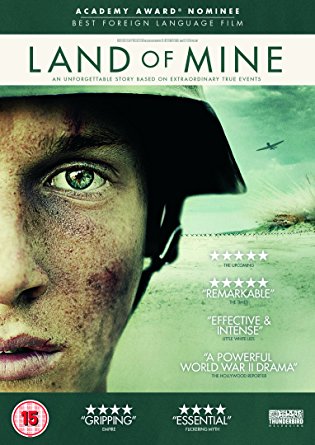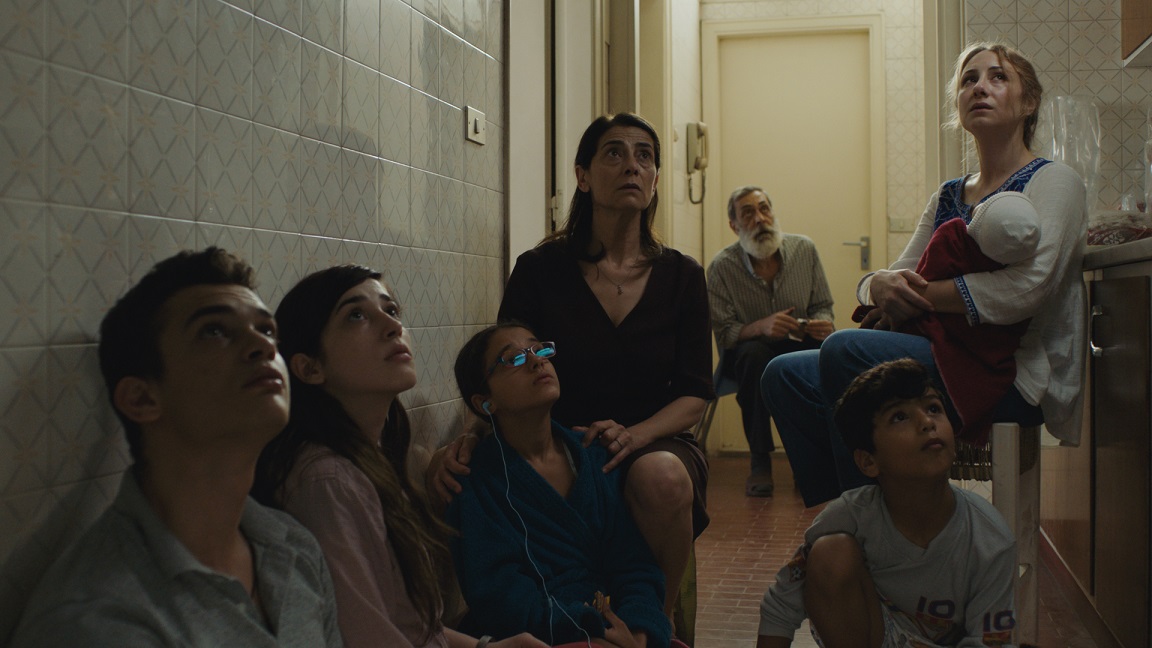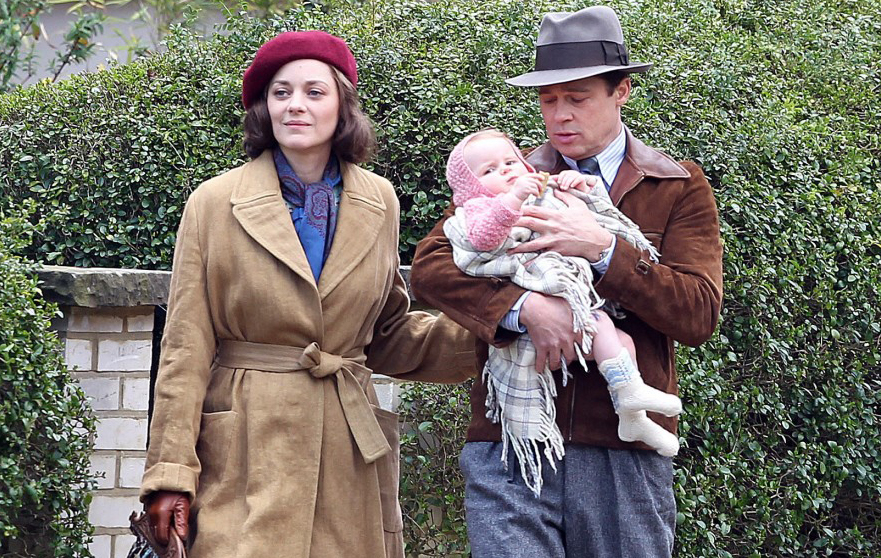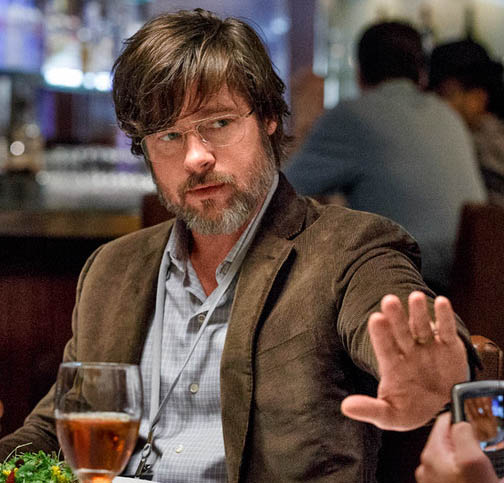DVD/Blu-ray review: Land of Mine
Extraordinarily tense ensemble drama about bomb disposal in the aftermath of World War II
Danish director Martin Zandvliet brilliantly explores a little-known episode in 1945 when more than 2,000 German POWs were forced to clear almost two million land mines that had been buried on the beaches of the west coast of Denmark in anticipation of an Allied invasion. Many of these POWS were schoolboys who had been conscripted in the final year of the war when the Nazis were desperate for soldiers.
Roland Møller plays a Danish sergeant who has spent the war fighting with the British (he still wears Parachute regiment uniform). He now has the task of overseeing 14 German teenagers who must crawl on their bellies, inch by inch, over the beach at Skallingen in search of sand-smothered bombs. His loathing for the Germans who had occupied his country is palpable. His initial treatment of the young POWs is brutal – as is his exasperation with his superiors who have sent exhausted, malnourished youths to perform such a difficult task.
 The film is beautifully shot by Camilla Hjelm Knudsen in desaturated colour. She uses mainly hand-held camerawork to portray not only the nerve-racking process of finding the landmines but also the evolving relationships between the POWs, a local mother and child, and their sergeant. There are a few atmospheric wide shots and the occasional aerial drone captures the deadly beauty of the beach (the historic location) but mainly Knudsen keeps us focused on the boys’ and their sergeant’s faces.
The film is beautifully shot by Camilla Hjelm Knudsen in desaturated colour. She uses mainly hand-held camerawork to portray not only the nerve-racking process of finding the landmines but also the evolving relationships between the POWs, a local mother and child, and their sergeant. There are a few atmospheric wide shots and the occasional aerial drone captures the deadly beauty of the beach (the historic location) but mainly Knudsen keeps us focused on the boys’ and their sergeant’s faces.
There’s something of August Sander’s wartime photography and even echoes of Rembrandt portraiture in the way she lights her subjects. Aided by subtle sound desigh and a skillfully deployed score, the result is wholly immersive. Slowly the Germans stop being an amorphous squad and become individuals, each with their own story. Slowly the sergeant evolves, too. Roland Møller served time in prison for assault and only became an actor in his late 30s but his performance here as the embittered sergeant is on a par with Mads Nikkelsen's best work.
Oscar-nominated, this Danish-German co-production caused considerable controversy in Denmark. The director was accused of being unpatriotic in his depiction of this moment in Danish history. Zandvliet (who also wrote the original script based on his research with amateur historians) deals with the complexities of post-war revenge and responsibility. POWs were forced to walk over mines, with locals picnicking while they watched them detonate. There’s a question about whether Denmark violated the Geneva Convention by forcing POWs to perform such dangerous work.
Originally titled Under the Sand, the only crude aspect of this extraordinarily tense drama is its punning English-language title. In its bomb disposal sequences, Land of Mine is up there with The Hurt Locker and The Small Back Room. Reminiscent of the work of Claire Denis and Michael Haneke, this is a great film about the chaotic aftermath of World War II and the moral ambiguities of revenge when the remaining enemy are the hapless teen soldiers left behind. The DVD extras include short interviews with the director, producers and key actors; more documentary historical material would have been welcome.
Overleaf: watch the trailer for Land of Mine

 As the day starts, the rest of the family – two daughters, Yara and Aliya, and son Yazan – appears and interrelationships become clear. Halima and Samir are actually neighbours: their upstairs apartment damaged, they have been welcomed into this home. Another visitor is Kareem, Yara’s boyfriend, who had unwisely come to visit her and is now unable to return home until the situation outside calms down. The old man is Oum Yazan’s father-in-law Mustafa (Mohsen Abbas); her husband is expected back, but attempts to make contact with him prove fruitless.
As the day starts, the rest of the family – two daughters, Yara and Aliya, and son Yazan – appears and interrelationships become clear. Halima and Samir are actually neighbours: their upstairs apartment damaged, they have been welcomed into this home. Another visitor is Kareem, Yara’s boyfriend, who had unwisely come to visit her and is now unable to return home until the situation outside calms down. The old man is Oum Yazan’s father-in-law Mustafa (Mohsen Abbas); her husband is expected back, but attempts to make contact with him prove fruitless. Nonetheless the Casablanca job is doubly successful, since the couple not only zap their target but also fall in love (they seal the deal in the back seat of a car, as it rocks in a tempestuous sandstorm). Suddenly it's a year later, and Max and Marianne are happily married and living in Hampstead, NW3. Mysteriously detached from the war, they're enjoying a riotous life, with their gaggle of bohemian, cocaine-snorting (really, in 1943?) friends. Their cup of happiness runneth over when Marianne gives birth to their daughter while being frantically wheeled around on a hospital bed in the middle of a spectacular CGI air raid.
Nonetheless the Casablanca job is doubly successful, since the couple not only zap their target but also fall in love (they seal the deal in the back seat of a car, as it rocks in a tempestuous sandstorm). Suddenly it's a year later, and Max and Marianne are happily married and living in Hampstead, NW3. Mysteriously detached from the war, they're enjoying a riotous life, with their gaggle of bohemian, cocaine-snorting (really, in 1943?) friends. Their cup of happiness runneth over when Marianne gives birth to their daughter while being frantically wheeled around on a hospital bed in the middle of a spectacular CGI air raid. Fury
Fury